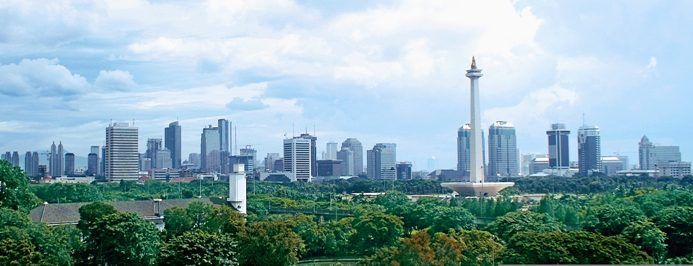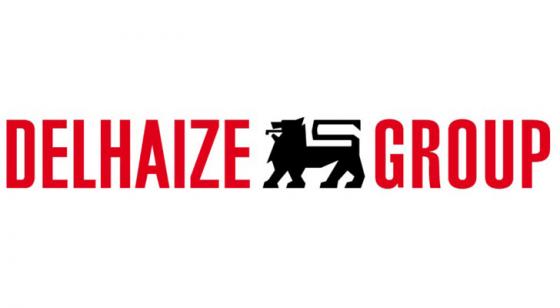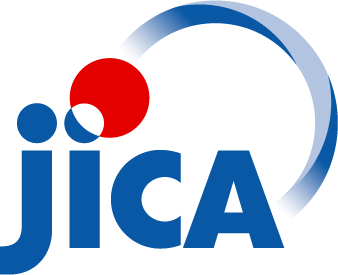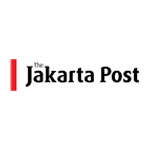
Summary
Indonesia’s success in entrenching democracy and its rapid economic growth has propelled the country into a position of regional and global power. The country has undergone immense political change in the last few years, moving from authoritarian rule to a robust and vibrant democracy and building a dynamic economy after being crippled by the 1997-98 Asian financial crisis. Indonesia’s “soft power” as a moderate Muslim majority nation is also growing, both in the neighbourhood and beyond.
“Our experience has taught us that sustainable economic development is only possible if there is political development too,” said Hassan Wirajuda, former Indonesian Minister of Foreign Affairs. Indonesia has long been the driving force behind ASEAN (Association of Southeast Asian Nations) and is active in helping to settle regional disputes, such as in the South China Sea. As a G20 member, Indonesia is also looking beyond Asia and is an important player for Europe and the US in terms of maritime security. Daniel Novotny, Director of Global Europe, said: “It is telling that Indonesia managed to push Australia, New Zealand, India, Russia and the US to come to the East Asia Summit.”
Indonesia’s reformasi after the Asian crisis of 1997-98 transformed the country. The strategic reforms undertaken unpicked 33 years of authoritarian rule and embedded democracy into the nation’s fabric. The measures unleashed a dynamic economy and GDP has accelerated. With 70 per cent of GDP based on domestic consumption, growth appears sustainable and Indonesia’s credit rating has been restored to investment grade. According to McKinsey, Indonesia is poised to become the 7th largest economy by 2030, ahead of UK and Germany. As Arif Havas Oegroseno, Ambassador of Indonesia to the EU, said: “We defy the belief that democracy is not compatible with growth or with Islam. We are the country of Mission Impossible.”
The Indonesian economy must overcome a number of challenges to sustain its growth rate. Theo Thomas, Senior Public Sector Specialist at the World Bank Office in Jakarta, said: “The economy is benefiting from a democracy dividend. But while 6 per cent growth sounds good, we think it could do better. It could be 7%-9%.” The lack of infrastructure is holding back growth. This includes physical infrastructure, available land, and a lack of skilled workers for building projects. The country also needs to avoid the middle income trap, with 50m citizens already classified as middle class.
The rapid pace of change has thrown up social and governance issues that the country must confront. While the education budget has increased by 20%, there are not necessarily commensurate improvements in outcomes. Mark Crossey, Director Programmes at British Council Indonesia, said: “The breakneck speed of legislative challenges means teachers and schools are catching up with demands.” Qualified teachers are in high demand and there are shortfalls in school inspectors. Poverty is still an issue, with an estimated 94m Indonesian citizens close to the poverty line. In addition, the devolution of politics to local government has created frictions and fiefdoms.
The EU has been slow to recognise Indonesia’s multi-faceted rise. The Partnership and Co-operation Agreement (PCA) signed in 2009 has yet to be ratified. Ana Gomes, MEP and Rapporteur for the EU-Indonesia PCA, said: “In Europe we are still failing to appreciate that Indonesia matters. It is not just about size and wealth, but about a success story of democratic transformation.” There are many shared values between Indonesia and the EU that can be built upon: diverse cultures and languages; a belief in democracy and peace, and a desire for regional and global co-operation. “We are in real danger of missing an opportunity with our Indonesian partners,” said Pierre Vimont, Executive Secretary General of the European External Action Service. Opening the conference, Shada Islam, Head of Policy at Friends of Europe said it was important that the EU and Indonesia: recognised each other as strategic partners; organised regular summits to ensure engagement at the highest level and started negotiations on a Comprehensive Economic Partnership Agreement.
While a so-called “scoping exercise” on a free trade and investment agreement was under way, Mauro Petriccione, Director for Asia at the European Commission, said: “Current policy is cumbersome for business, protectionist and not always open. Moving up the value chain is good, but trade restrictions are not.”
About
Indonesia’s rise is backed up by impressive figures. The country has the biggest economy — at US$850 billion — in Southeast Asia and growth rates of above 6 per cent in recent years have lifted per capita income
to more than US$3,500. The future is bright: the OECD predicts that Indonesia’s economic growth will expand by an average 6.4 per cent from 2013 to 2017, putting the nation among the fastest growing Asian countries.
In the meantime, indonesia is making its mark on the regional and global stage. A robust and dynamic democracy, Indonesia is a member of the G-20, an acknowledged leader of the Association of Southeast Asian Nations (ASEAN) and, as the world’s most populous Muslim nation (albeit with a secular constitution), a moderating force within the Organisation of the Islamic Conference (OIC). The conclusion of an EU–Indonesian Partnership and Cooperation Agreement in 2009 is a step in the right direction, as are plans to sign a Comprehensive Economic Partnership Agreement. However, the relationship needs to become stronger and more strategic, reflecting the changing nature of both Indonesia and the EU.
Schedule
Indonesia’s rise is backed up by impressive figures. The country has the biggest economy — at US$850 billion — in Southeast Asia and growth rates of above 6 per cent in recent years have lifted per capita income to more than US$3,500. The future is bright: the OECD predicts that Indonesia’s economic growth will expand by an average 6.4 per cent from 2013 to 2017, putting the nation among the fastest growing Asian countries. Significantly, investment and domestic consumption remain the main drivers for Indonesia’s growth, helping to shield the country from the worst aspects of global economic turmoil. However, the government needs to make faster progress in addressing issues like corruption, extremism and the education and skills gap. To continue growing and avoid the “middle income trap”, Indonesia must act urgently to improve infrastructure, investment regulations, government procurement rules and property rights. What progress is being made in implementing the Master Plan for the Acceleration and Expansion of Indonesia’s Economic Development (MP3EI) launched in 2011? Is the government doing enough to boost infrastructure spending? Can Indonesia generate more power to meet the rising demands of a growing economy? Is the Indonesian economy too dependent on the export of commodities? What is being done to ensure the development of capital-intensive industries such as chemical, metal and automotive to meet strong domestic demand? Can Indonesia avoid the middle income trap? In an increasingly competitive regional and global environment, how do foreign investors view Indonesia as an investment destination?
Keynote address by
Nur Hassan Wirajuda
Indonesian Minister of Foreign Affairs (2001 - 2009)
Speakers
Mark Crossey
Director Programmes at British Council Indonesia
Ana Gomes
Former member of the European Parliament and Trustee of Friends of Europe
Muhadi Sugiono
Director of the Center for Southeast Asian Social Studies at the University Gadjah Mada
Theo Thomas
Senior Public Sector Specialist at the World Bank Office in Jakarta, Indonesia
Wahyu Utomo
Deputy for Public-Private Partnership at the Coordinating Ministry of Economic Affairs, Indonesia
Moderators
Giles Merritt
Founder of Friends of Europe
Shada Islam
Managing Director at New Horizons Project
Indonesia is making its mark on the regional and global stage. A robust and dynamic democracy, Indonesia is a member of the G-20, an acknowledged leader of the Association of Southeast Asian Nations (ASEAN) and, as the world’s most populous Muslim nation (albeit with a secular constitution), a moderating force within the Organisation of the Islamic Conference (OIC). The conclusion of an EU–Indonesian Partnership and Cooperation Agreement in 2009 is a step in the right direction, as are plans to sign a Comprehensive Economic Partnership Agreement. However, the relationship needs to become stronger and more strategic, reflecting the changing nature of both Indonesia and the EU. What are Indonesia’s key priorities within the G20? Could Indonesia break away from ASEAN and chart an independent course which would include new emphasis on human rights, democracy and the rule of law? How is Indonesia reacting to the growing economic, political and military assertiveness of China? What are the lessons to be learned from the Indonesian experience with democratic transition for Arab nations? How can the EU-Indonesian relationship be given more substance? What are the rewards of a qualitative leap forward in EU-Indonesian relations? What would be the benefits of an EU-Indonesia strategic partnership? How are negotiations progressing on a Comprehensive Economic Cooperation Agreement which would link the EU and Indonesia?
Keynote address by
Pierre Vimont
Secretary General of the European External Action Service (EEAS)
Speakers
Aida Budiman
Director of the International Affairs Department of Bank Indonesia
Daniel Novotny
Director of Global Europe
Mauro Petriccione
Director-General at the European Commission’s Directorate-General for Climate Action
Edy Prasetyono
Vice Dean of the Faculty of Social and Political Sciences at the University of Indonesia
Disty Winata
Google Zeitgeist Young Mind and the 2012 G(irls)20 Summit delegate from Indonesia
Simon Worthington
Senior Advisor of European Government Affairs at BP
Moderators
Giles Merritt
Founder of Friends of Europe
Shada Islam
Managing Director at New Horizons Project
Partners
With the support of



In association with


Media partner

Activities
Europe-China Forum
Next event In person & livestreamed

- Area of Expertise
- Global Europe
Trading tariffs and trade as a geopolitical tool
Past event

- Area of Expertise
- Global Europe
From aid to investment: shaping Europe's global role in a changing world
Past event Online

- Area of Expertise
- Global Europe
Future Africa-Europe High-Level Forum
Past event IN PERSON & ONLINE

- Area of Expertise
- Global Europe
Trump's betrayal of the world's poor is Europe's opportunity
- Category
- Frankly Speaking
- Author
- By Giles Merritt
Policy Voices | #Throwback: UNRWA’s Jonathan Fowler on Gaza: “It is a…
- Category
- Podcast
- Area of Expertise
- Global Europe
DRIVE Impact Initiative final report
- Category
- Event Reports
- Area of Expertise
- Global Europe
Europe’s blackouts call for a NATO-level response
- Category
- #CriticalThinking
- Author
- By Maurizio Geri

- Area of Expertise
- Global Europe

- Area of Expertise
- Global Europe

- Area of Expertise
- Global Europe

- Area of Expertise
- Democracy
Continue
the debate on
- Debating Europe
